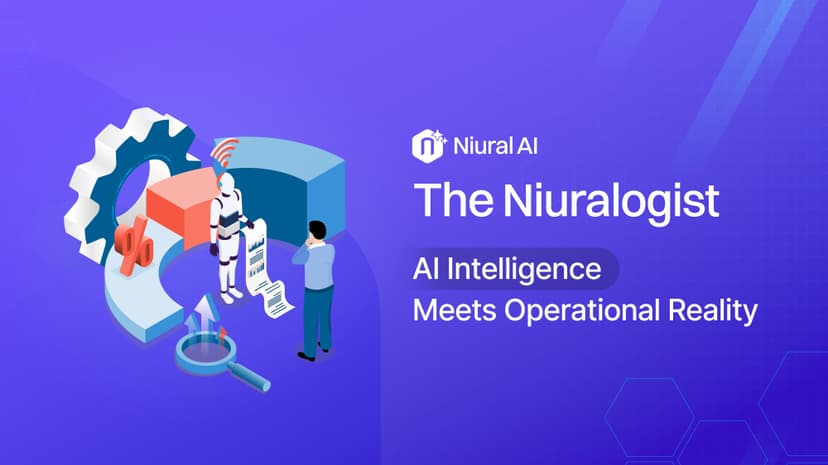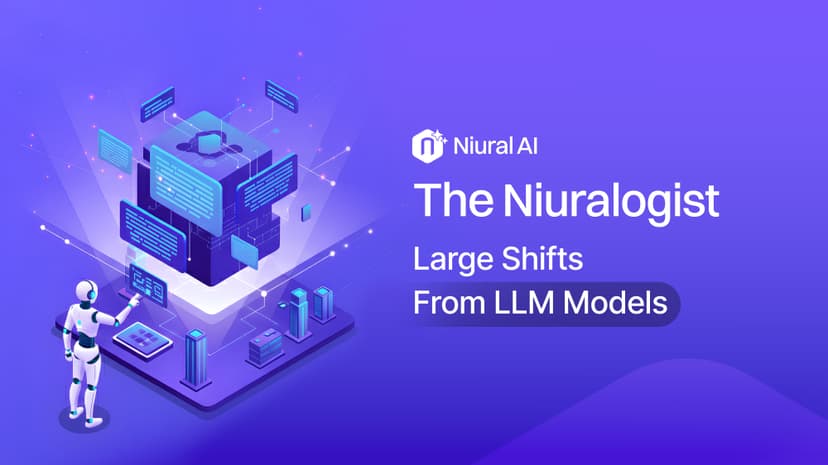Hello, Niuralogists!
Welcome to this week’s edition, where we dive into the latest advancements in artificial intelligence. We’ll explore how these innovations are shaping various aspects of our lives—from the workplace and business to policies and personal experiences. This issue highlights some fascinating updates, including DeepSeek’s meteoric rise, concerns about the pace of AI development, AI for government use, and much more.
For more in-depth coverage, keep reading…
DeepSeek’s Rapid Ascent
DeepSeek, a Chinese AI startup, has recently made significant strides in the artificial intelligence sector. The company released its R1 model, a 671-billion-parameter open-source reasoning AI, developed at a cost of $5.6 million, a fraction of what competitors have spent to build their LLMs. This efficient approach has garnered attention for its potential to challenge Western AI models, holding its own and in some cases surpassing the performance of industry leading models.
The launch of DeepSeek's AI Assistant propelled it to the top of the U.S. iOS App Store, surpassing ChatGPT. This success has raised concerns among U.S. officials about data privacy and national security. Microsoft and OpenAI are investigating whether a group linked to DeepSeek improperly obtained data from OpenAI's technology.
In response to DeepSeek's rapid advancement, U.S. tech companies are reassessing their AI strategies. Former President Donald Trump described DeepSeek's rise as a "wake-up call" for U.S. tech giants, highlighting China's progress in AI.
DeepSeek's emergence underscores the accelerating global competition in AI development, prompting discussions on innovation, data security, and the future of artificial intelligence.

Source: Pexels
The US Copyright Office's Stance on AI and Copyright Protection
The U.S. Copyright Office released Copyright and Artificial Intelligence: Part 2 - Copyrightability, addressing the legal status of works generated by AI. The report concludes that existing copyright law is sufficient to determine whether AI-generated works can be protected. While AI can be used as a tool to assist human creators, purely AI-generated content cannot be copyrighted. The report clarifies that human involvement is necessary for copyright eligibility, with human contributions such as prompts, modifications, or arrangement being key. It also discusses the implications for future legislative changes, concluding that no new protections for AI-generated works are currently needed. The report will guide future copyright registrations and legal considerations regarding AI.
Humanity's Last Exam: AI's Expert-Level Challenge
"Humanity's Last Exam," created by Scale AI and the Center for AI Safety, benchmarks AI systems against expert-level questions across diverse fields like mathematics and the humanities. The January 2025 results revealed AI models answered less than 10% of questions correctly, emphasizing the gap between current AI capabilities and human expertise. With 3,000 challenging questions from 1,000 contributors globally, this initiative serves as a reference for measuring AI’s progress toward human-level intelligence. The project sparks important discussions about AI’s development, risks, and governance, highlighting the need for ongoing research to close this gap.

Source: Pexels
OpenAI Releases a Secure ChatGPT Model for Government Use
OpenAI has introduced ChatGPT Gov, a customized version of its AI model designed to enhance the productivity and efficiency of U.S. government agencies. Available through Microsoft’s Azure cloud, including Azure Government cloud, ChatGPT Gov allows agencies to meet stringent security, privacy, and compliance standards. The tool provides government employees access to GPT-4o, OpenAI's flagship model. With features like conversation saving, file uploads, and the ability to create and share custom GPTs, ChatGPT Gov supports the needs of government agencies while ensuring alignment with federal cybersecurity frameworks. Since 2024, thousands of government employees have already used ChatGPT tools to streamline tasks in areas like scientific research, administrative work, and multilingual translation. OpenAI continues to work toward expanding the service’s reach and security to further enhance public service delivery.
Former OpenAI Safety Expert Warns of the Risks of Rapid AI Development
Steven Adler, former OpenAI safety expert, shared his thoughts on the pace and risks of AI development. After leaving OpenAI in mid-November, Adler expressed concern over the rapid advancements in AI, particularly in the race toward AGI (Artificial General Intelligence). He warned that the absence of solutions to AI alignment and the increasing pressure to race ahead could lead to disastrous consequences. Adler highlighted the dangerous equilibrium where labs, even with good intentions, may feel compelled to cut corners to compete. He called for candid discussions about safety regulations to prevent accelerating this race.
Q&Ai
Is DeepSeek's progress overstated? Anthropic AI CEO thinks so.
Dario Amodei, co-founder of Anthropic, released a statement discussing the recent developments by DeepSeek, a Chinese AI company, that have brought its models close to the performance of US frontier AI at a fraction of the cost. He argues that these releases do not undermine the need for US export controls on chips to China, but rather highlight their importance. Amodei outlines three dynamics driving AI development: scaling laws, shifts in the training curve, and paradigm shifts like reinforcement learning. He concludes that while DeepSeek’s models are impressive, but not as profound as the media has made it out to be, and the need for export controls to limit China’s access to top-tier AI chips remains critical to global security.
Can ByteDance's AI expansion help it maintain dominance amid U.S. TikTok uncertainty?
ByteDance, the parent company of TikTok, has earmarked 150 billion yuan ($20.64 billion) in capital expenditure for 2024, focusing largely on artificial intelligence (AI) infrastructure. Around half of this amount will be spent abroad on data centers and networking equipment, benefiting chipmakers Huawei, Cambricon Technologies, and U.S. supplier Nvidia. The investment aims to solidify ByteDance's AI leadership, both domestically and internationally. With over 15 standalone AI applications, including its top chatbot Doubao, ByteDance now surpasses rivals like Baidu and Tencent in AI development. This expansion also comes at a critical time as ByteDance navigates the future of TikTok in the U.S., amid regulatory uncertainty.
Tools
🎥 Pika 2.1 is a new AI video model with enhanced realism, motion, and control
🐋 Janus-Pro is DeepSeek’s new open-source AI image generation model
🤖 Qwen2.5-VL is a new family of vision-language models with agentic capabilities to interact with computers and phones
📝 BulletPen transforms spoken thoughts and rambles into polished writing
🦢 Goose is an open-source AI agent platform for automating engineering tasks
Follow us on Twitter and LinkedIn for more content on artificial intelligence, global payments, and compliance. Learn more about how Niural uses AI for global payments and team management to care for your company's most valuable resource: your people.
See you next week!
%2520(5).jpg&w=1200&q=75)


